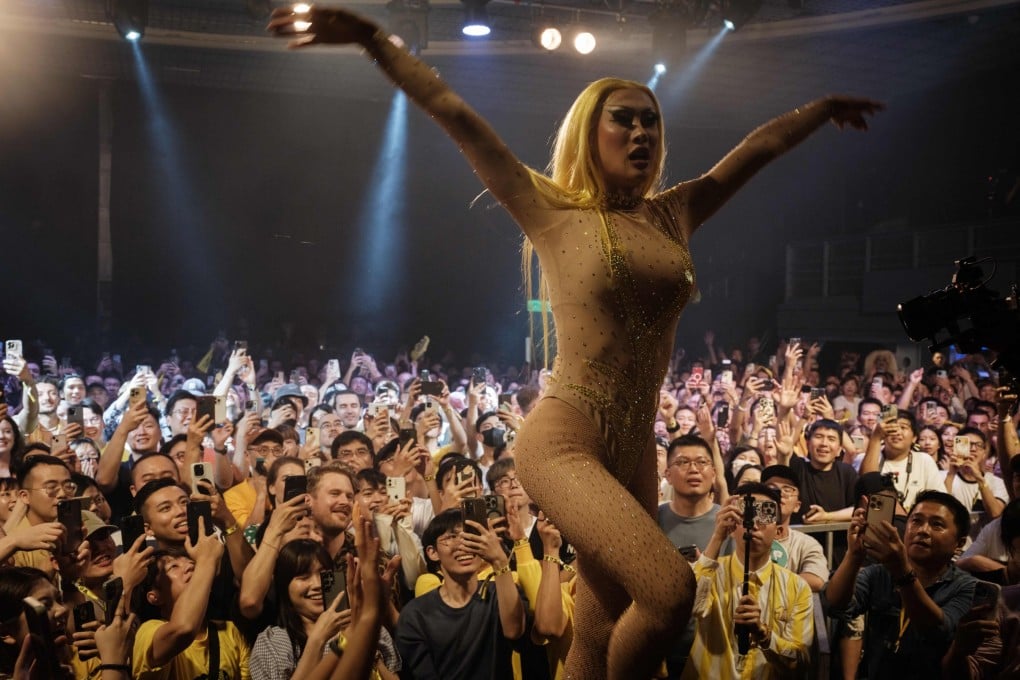Taiwan’s drag queens go mainstream after Nymphia Wind wins RuPaul’s Drag Race
- When Nymphia Wind dedicated her win on RuPaul’s Drag Race, the first by an East Asian, to Taiwan it showed how the scene there has evolved

When Nymphia Wind became the first East Asian contestant to win “America’s Next Drag Superstar” on RuPaul’s Drag Race in April, celebrations erupted across her homeland.
Prominent gay bars from north to south held crowded screenings to cheer on their representative from afar, and the accolades were well received – and not just among the LGBTQ+ community.
On the show, Nymphia often talked about her heritage and drew on her background to create costumes and masks inspired by the traditional culture of Taiwan.
There was an unprecedented performance at the presidential office for Taiwan’s then leader, Tsai Ing-wen, just before the inauguration of William Lai Ching-te.
Nymphia headlined the show, joined by several other local drag queens, making the occasion a significant milestone in LGBTQ+ visibility on the island.
